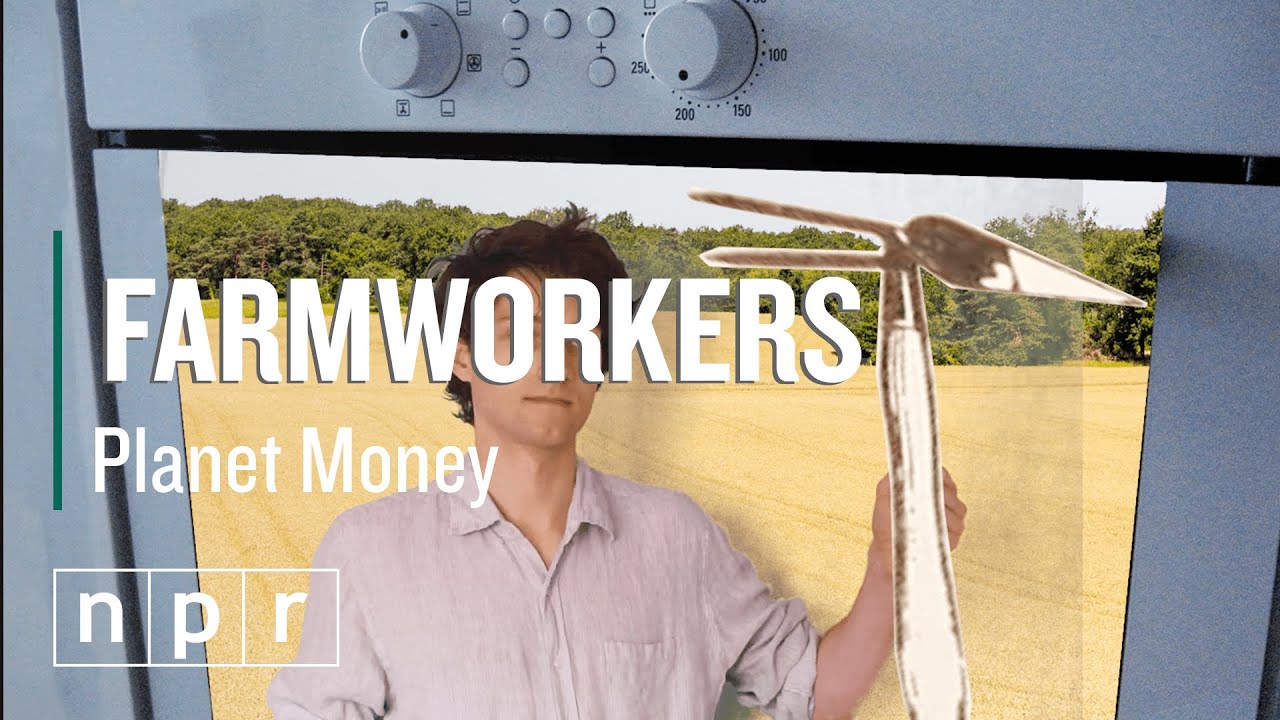What's A Cooking Show Without Any Food? | Planet Money | NPR
Thanks! Thanks! Alright, everybody Now what is it that I always say? Cooking is like a story.
That's right! What we're cooking today is a super zesty vegetarian chili and the story we're telling is about farmers and farmworkers.
Let's go to the grocery store! Getting food the first few weeks of this crisis was insane.
Grocery stores were seeing a lot more customers than usual.
You'd see a lot of empty shelves.
Part of the problem was labor.
There just weren't enough people packing our food in warehouses and getting it out the door fast enough.
Those empty shelves were a sign of the system trying to catch up with the new demand.
And for the most part, it did catch up.
You can hire more workers to move groceries, but the bigger problem might be on farms.
So take Matt Harsh, he's a farmer in Maryland.
Woah, check out that flag.
Why is it like that? Oh.
Jack, get back to the story.
For the story, we'll say he's this squash.
Every April 1st, Matt brings 20 to 25 farmworkers these tomatoes, all from Mexico on H-2A Visas.
That's the temporary farmworker Visa.
And they stay for, at most, 10 months to harvest all the fruits and vegetables.
And he brings up workers from Mexico because he can't find any Americans to take the jobs.
They just don't love doing this kind of work.
During the last recession, farms in North Carolina tried to hire U.
S.
workers.
They had 6, 500 openings.
That's as many grains as there are in this big pile of rice.
163 people showed up, this smaller pile of rice.
And only seven kept the job.
Rice? More like yikes.
*audience groans* Anyway, we'll need all this rice for the chili.
73% of farmworkers in the U.
S.
are foreign born.
Half are undocumented.
And bringing seasonal workers in from another country is a whole long process.
Matt: Hey wanna work for me? Matt has to try and recruit workers domestically and prove to the State Department of Labor that he tried.
Matt: I tried! Then he has to go through the Department of Homeland Security to get Visas for his farmworkers.
And to do this, they have to go to interviews and appointments at the consulate in Mexico.
And when the U.
S.
started closing borders and restricting travel over coronavirus concerns, Matt started to get a little worried.
Matt needed 20 workers.
Emilio Luna and seven of his fellow workers took the call before the consulate stopped accepting new appointments.
Emilio and the others usually fly up, but flights were looking unreliable.
So they took a van.
They drove from Monterrey, Mexico to Maryland: a three to four day drive.
Emilio says it was not easy.
Those eight guys slept sitting up in the van and only stopped for gas and food.
It's super important for Emilio and other farmworkers to get to the farm on time.
If they're late, it's enough to effect the whole harvest.
But there are some crops that we don't need to worry about because they don't require a ton of labor.
The robots are on it.
Like wheat and corn.
Those are mostly mechanized.
These'll add a nice mechanical taste to our chili.
But that's not the same for fruits and vegetables.
Take a peach, we'll need that also for our chili.
Workers will go into the orchard and pick peaches by hand.
In fact, most of our fruits and vegetables are harvested by hand.
Which is why Matt started freaking out.
He's like, “What's going to happen if these farmworkers get sick?” Who's going to pick it all for everyone? Sure, they can be socially distancing when they're out harvesting on the acres and acres of crops, but then they go home.
And farmworkers usually share homes and live in really close quarters.
Like, 20 to a room.
That is like the opposite of what we're supposed to be doing right now.
Experts say as testing becomes more available, farmworkers should be part of this priority.
For farmworkers, living conditions and health insurance have always been a problem, but now it has the chance to affect the food supply.
If there's an outbreak, now here in July there may be fewer peaches.
And in August, fewer fruit.
Again in Autumn with those tomatoes and squash.
In May, nearly all the farmworkers on a farm in Tennessee tested positive.
50 out of 70 farmworkers on a farm in New Jersey tested postive.
And there are many more.
The hope is that we'll be better at testing by then, at least good enough to keep out farmworkers safe.
*timer rings* Looks like our chili's done.
But we only had the ingredients that were harvested by robots, so it's just hot corn water.
With flour.
Internal monologue: “Where did you go wrong?” This is the worst thing you've ever made.
Why is this video so bad? You're worthless.
This green screen is horrible.
Just needs a pinch of salt! Alright who wants to try some? Yeah come on down!.
